Related Research Articles

Charles Leonard Gehringer, nicknamed "The Mechanical Man", was an American professional baseball second baseman, coach, general manager, and team vice president, who played in Major League Baseball (MLB) for the Detroit Tigers for 19 seasons (1924–1942). He was elected to the Baseball Hall of Fame in 1949.

Luis Ernesto Aparicio Montiel, nicknamed "Little Louie", is a Venezuelan former professional baseball player who is notable for being the first player from Venezuela to be inducted into the National Baseball Hall of Fame. He played as a shortstop in Major League Baseball (MLB) from 1956 to 1973, most notably for the Chicago White Sox with whom he became known for his exceptional defensive and base stealing skills.

Warren Edward Spahn was an American professional baseball player. He played in Major League Baseball as a left-handed pitcher in 1942 and then from 1946 until 1965, most notably for the Boston Braves who became the Milwaukee Braves after the team moved west before the 1953 season. His baseball career was interrupted by his military service in the United States Army during the Second World War.
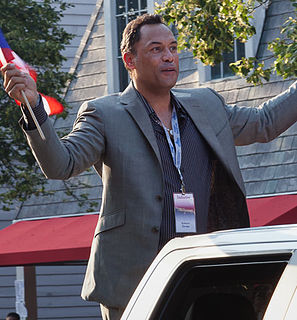
Roberto "Robbie" Alomar Velázquez is a Puerto Rican former Major League Baseball (MLB) player who played for the San Diego Padres, Toronto Blue Jays, Baltimore Orioles, Cleveland Indians, New York Mets, Chicago White Sox, and Arizona Diamondbacks (1988–2004). He is regarded as one of the greatest second basemen and all-around players of all time. During his career, the 12-time All-Star won more Gold Glove Awards for his defense (10) than any other second baseman in baseball history, in addition to winning four Silver Slugger Awards for his hitting. Among second basemen, he ranks third in games played (2,320), fifth in stolen bases (474), sixth in plate appearances (10,400), seventh in doubles (504) and assists (6,524), and eighth in hits (2,724), runs (1,508), at bats (9,073), and double plays turned (1,407). In 2011, Alomar was inducted into the National Baseball Hall of Fame, becoming the first Hall of Fame member to be depicted as a Blue Jays player on his plaque.
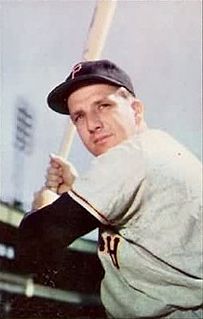
Ralph McPherran Kiner was an American Major League Baseball player and broadcaster. An outfielder, Kiner played for the Pittsburgh Pirates, Chicago Cubs, and Cleveland Indians from 1946 through 1955. Following his retirement, Kiner served from 1956 through 1960 as general manager of the Pacific Coast League San Diego Padres. He also served as an announcer for the New York Mets from the team's inception until his death. Though injuries forced his retirement from active play after 10 seasons, Kiner's tremendous slugging outpaced all of his National League contemporaries between the years 1946 and 1952. He was elected to the Baseball Hall of Fame in 1975.
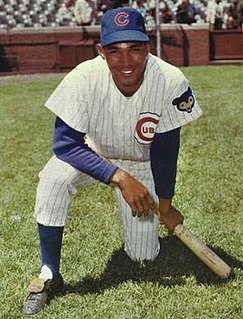
Billy Leo Williams is a retired American baseball left fielder who played 16 seasons in Major League Baseball (MLB) for the Chicago Cubs and 2 seasons for the Oakland Athletics. Williams was inducted into the National Baseball Hall of Fame in 1987. In 1999, he was named a finalist for the Major League Baseball All-Century Team.
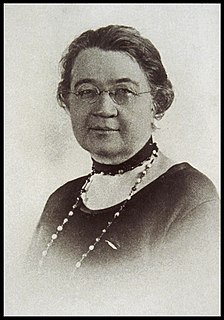
Mary Eileen Ahern was an American librarian, a leader of the modern library movement, and an early organizer of libraries in the United States. Throughout her career as a state librarian, journal editor, public speaker, and organizer, Ahern crusaded for the value of public libraries in educating the public. Ahern was inducted in the Library Hall of Fame in 1951, and named in American Libraries in 1999 as one of the "100 of the Most Important Leaders We Had in the 20th Century."
Minnie Earl Sears formulated the Sears List of Subject Headings, a simplification of the Library of Congress Subject Headings. In 1999, American Libraries named her one of the "100 Most Important Leaders We Had in the 20th Century".
Time 100: The Most Important People of the Century is a compilation of the 20th century's 100 most influential people, published in Time magazine in 1999.

Halsey William (H.W.) Wilson was the creator of the Readers' Guide, the Cumulative Book Index, and the Book Review Digest and founder of the H. W. Wilson Company, a publisher. In 1999, American Libraries named him one of the "100 Most Important Leaders We Had in the 20th Century".
Ralph Adrian Ulveling was an American librarian best known for his support of intellectual freedom, interracial understanding, and the advancement of the library and information science profession. He is listed as one of the most important contributors to the library profession during the 20th century by the journal American Libraries.
Marvin Herman Scilken was an American librarian and a leader in the field of library science during the 20th century. Scilken dedicated his life to bringing awareness to libraries and improving services for patrons. He encouraged libraries to take a more practical approach to librarianship and to consider libraries as a house of books rather than information centers. In 1999, American Libraries named him one of the "100 Most Important Leaders We Had in the 20th Century".
William Shepherd Dix was a scholar and librarian who had a 22-year career as Librarian at Princeton University in New Jersey, without a degree in library science. His contributions to the field of librarianship, however, are varied and notable, making him worthy of recognition in the American Libraries' 100 most important figures.
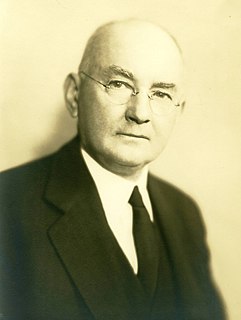
Louis Round Wilson was an important figure to the field of library science, and is listed in “100 of the most important leaders we had in the 20th century,” an article in the December 1999 issue of American Libraries. The article lists what he did for the field of library science, including founding the library school at the University of Chicago, directing the library at the University of North Carolina/Chapel Hill, and as one of the “internationally oriented library leaders in the U.S. who contributed much of the early history of the International Federation of Library Associations and Institutions.” The Louis Round Wilson Library is named after him.
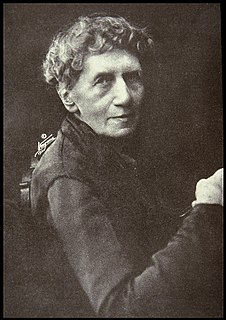
Caroline Maria Hewins was an American librarian.

Arthur Curley was an American librarian who was listed as one of the 100 most important library leaders of the 20th century by journal American Libraries.
David Horace Clift was a noted American librarian and former chief executive of the American Library Association (ALA) from 1951 to 1972. He was named by the ALA as one of the 100 Most Important [Library] Leaders of the 20th Century.

George Burwell Utley was an American librarian. Utley was a published author, first director of the Jacksonville Public Library (Florida), librarian of the Newberry Library in Chicago, Illinois and served terms as secretary and later as president of the American Library Association. In 1999, American Libraries named him one of the "100 Most Important Leaders We Had in the 20th Century".
Joseph Henry Reason was an American librarian. He was director of the Howard University library system for 25 years. He was the first African-American to serve as president of the Association of College and Research Libraries (ACRL) and to be nominated for president of the American Library Association (ALA). In 1999, American Libraries named him one of the "100 Most Important Leaders We Had in the 20th Century". His son, J. Paul Reason, was the first African-American four star Admiral in the United States Navy.
Francis Regis St. John was an American librarian and director of the Brooklyn Public Library from 1949 to 1963. In 1999, American Libraries named him one of the "100 Most Important Leaders We Had in the 20th Century".
References
- ↑ "A Library Hall of Fame" (1951 March 15) Library Journal, 766: 466-72.
- ↑ "100 of the Most Important Leaders we had in the 20th century" (1999 December) American Libraries, 30 (11): 38-46, 48.
- ↑ "100 of the Most Important Leaders we had in the 20th century" (1999 December) American Libraries, 30 (11): 39.